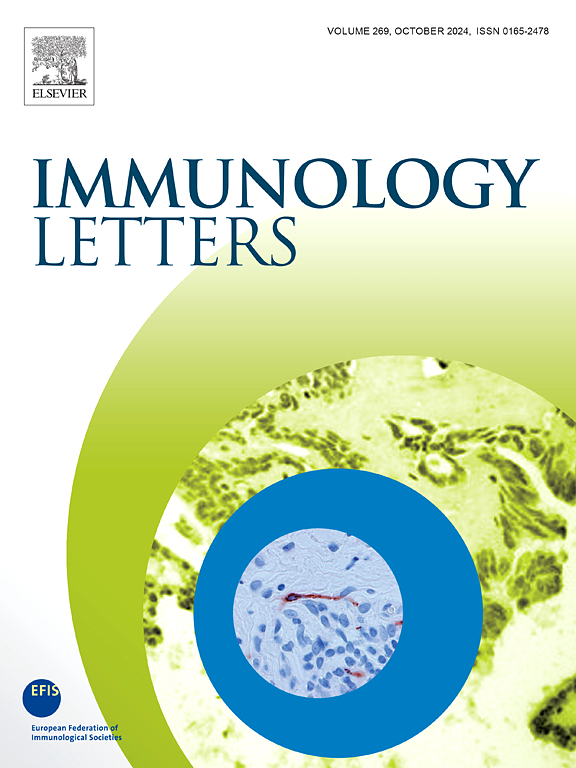Innate lymphoid cells: Dual roles and therapeutic opportunities in breast cancer
IF 2.8
4区 医学
Q3 IMMUNOLOGY
引用次数: 0
Abstract
Innate lymphoid cells (ILC) play a crucial role in shaping immune responses and maintaining tissue homeostasis. Recent research has identified their involvement in breast cancer pathogenesis, mainly through shaping the tumor microenvironment, where they can exert dual roles, either promoting tumor eradication by enhancing anti-tumor immunity, or facilitating tumor progression through mechanisms of immune evasion. This functional plasticity makes ILC attractive targets for immunotherapy. Furthermore, their slow proliferation enables them to survive anti-proliferative radiation therapy and chemotherapy, which may support continuous immune surveillance of breast cancer tissue. However, this same resilience poses a significant challenge, as surviving ILC could contribute to tumor persistence or recurrence. Additionally, anti-estrogen therapy, chemotherapy and immune checkpoint inhibitors, commonly used in breast cancer treatment, may interfere with ILC function, either dampening their anti-tumor potential or enhancing their pro-tumor activities. Understanding the complex interactions between ILC and conventional therapies is critical for designing effective immunotherapeutic approaches that include ILC targeting, potentially overcoming resistance and improving patient outcomes in breast cancer therapy.
先天淋巴样细胞:乳腺癌的双重作用和治疗机会。
先天淋巴样细胞(ILC)在形成免疫反应和维持组织稳态中起着至关重要的作用。最近的研究发现,它们主要通过塑造肿瘤微环境参与乳腺癌的发病,在微环境中它们可以发挥双重作用,要么通过增强抗肿瘤免疫来促进肿瘤根除,要么通过免疫逃避机制促进肿瘤进展。这种功能可塑性使ILC成为免疫治疗的有吸引力的靶点。此外,它们的缓慢增殖使它们能够在抗增殖性放射治疗和化疗中存活下来,这可能支持对乳腺癌组织的持续免疫监测。然而,这种相同的恢复能力带来了重大挑战,因为存活的ILC可能有助于肿瘤的持续或复发。此外,乳腺癌治疗中常用的抗雌激素治疗、化疗和免疫检查点抑制剂可能会干扰ILC的功能,抑制其抗肿瘤潜能或增强其促肿瘤活性。了解ILC和常规疗法之间复杂的相互作用对于设计有效的免疫治疗方法至关重要,这些方法包括ILC靶向,潜在地克服耐药性和改善乳腺癌治疗中的患者预后。
本文章由计算机程序翻译,如有差异,请以英文原文为准。
求助全文
约1分钟内获得全文
求助全文
来源期刊

Immunology letters
医学-免疫学
CiteScore
7.60
自引率
0.00%
发文量
86
审稿时长
44 days
期刊介绍:
Immunology Letters provides a vehicle for the speedy publication of experimental papers, (mini)Reviews and Letters to the Editor addressing all aspects of molecular and cellular immunology. The essential criteria for publication will be clarity, experimental soundness and novelty. Results contradictory to current accepted thinking or ideas divergent from actual dogmas will be considered for publication provided that they are based on solid experimental findings.
Preference will be given to papers of immediate importance to other investigators, either by their experimental data, new ideas or new methodology. Scientific correspondence to the Editor-in-Chief related to the published papers may also be accepted provided that they are short and scientifically relevant to the papers mentioned, in order to provide a continuing forum for discussion.
 求助内容:
求助内容: 应助结果提醒方式:
应助结果提醒方式:


